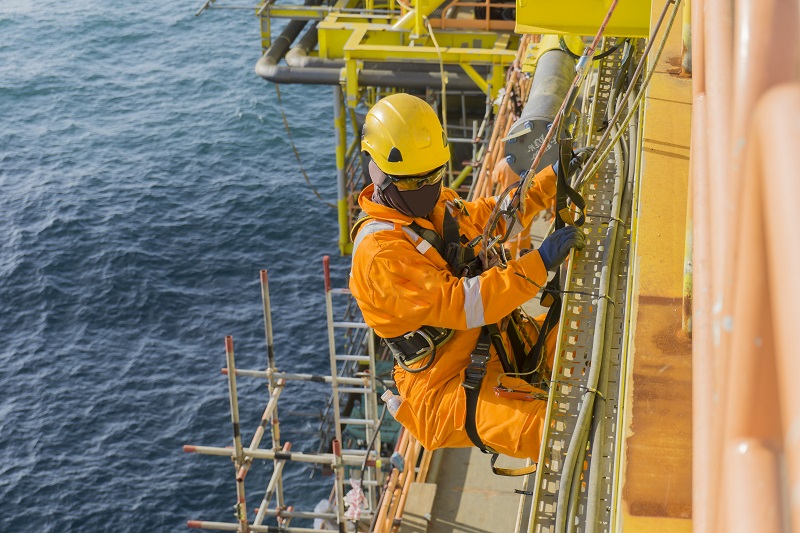Maritime workers face unique challenges in their line of work, and injuries can significantly impact their lives. The journey to recovery involves not only physical healing but also mental and emotional well-being. In this article, we will explore effective rehabilitation techniques and strategies tailored to injured maritime workers, providing guidance on how they can overcome obstacles and find strength during their recovery process.
Physical Therapy for Maritime Injuries
Physical therapy is a cornerstone of rehabilitation for injured maritime workers. Specialized exercises are essential for addressing the specific injuries commonly experienced in their line of work. Healthcare professionals in Chicago often advise injured workers to seek comprehensive rehabilitation that encompasses targeted physical therapy to maximize recovery potential.
This rehabilitation approach may include aquatic therapy, which uses the buoyancy of water to reduce strain on injured areas, aiding in mobility improvement and strengthening muscles. Early intervention and personalized treatment plans are key factors in optimizing the effectiveness of physical therapy for maritime injuries.
Mental Health Support for Injured Maritime Workers
Injuries can have profound effects on the mental health of maritime workers. Healthcare workers recognize the importance of mental health support during the recovery process. Injured workers may face post-injury anxiety, depression, or feelings of uncertainty about their future.
Seeking professional counseling and taking part in support groups can provide invaluable emotional support and coping mechanisms. By addressing mental health challenges alongside physical rehabilitation, injured maritime workers can enhance their overall well-being and resilience during the recovery journey.
Adapting to Life After a Maritime Injury
Recovering from a maritime injury is a transformative journey that requires adapting to a new way of life. Finding a renewed sense of purpose and exploring alternative career paths become paramount for those whose injuries may hinder their return to previous roles.
Adapting to physical limitations and devising effective strategies for managing daily activities are essential steps in this process. By setting realistic goals and maintaining a positive outlook, injured maritime workers can rebuild their lives and embark on a path of healing and personal growth after their injury.
Navigating Legal Support in Chicago
Besides physical and emotional challenges, injured maritime workers may encounter legal complexities during their recovery journey. Jones Act lawyers in Chicago specialize in maritime law and play a crucial role in providing legal guidance and representation for injured workers. These skilled attorneys understand the intricacies of the Jones Act and other relevant maritime laws, advocating for the rights and interests of their clients.
From helping injured workers pursue compensation for their injuries to ensuring employers adhere to their legal obligations, Legal representatives offer invaluable support throughout the legal process. With their expertise, injured maritime workers can focus on healing and rebuilding their lives, knowing that dedicated legal professionals are by their side, protecting their rights in the face of adversity.
Overcoming Challenges During Recovery
The road to recovery is seldom without challenges, and injured maritime workers may face setbacks during their rehabilitation journey. Experts advise their clients to stay motivated and proactive in their recovery efforts. Balancing rest and activity to avoid overexertion is crucial for a successful recovery. Building a support network of family, friends, and fellow injured workers can provide encouragement and a sense of community during difficult times.
Returning to Work: Navigating the Transition
For many injured maritime workers, returning to work after an injury is a significant milestone. Advocates for open communication with employers regarding work restrictions and necessary accommodations. Understanding legal rights and protections during the reintegration process is essential to ensure a smooth return to the workforce. Sometimes, injured workers may need vocational training or career resources to explore new job opportunities that align with their capabilities.
Conclusion
Injured maritime workers face unique challenges during their recovery journey, causing a comprehensive approach that encompasses physical, mental, and emotional well-being. By seeking effective rehabilitation techniques and mental health support, and adapting to their new circumstances, these workers can navigate the road to recovery successfully.
The guidance and expertise of professionals play a vital role in ensuring injured maritime workers receive the comprehensive support they need throughout their recovery process. With the right resources and a strong support system, injured maritime workers can find strength, resilience, and hope as they move forward on the path to healing and reclaiming their lives.







